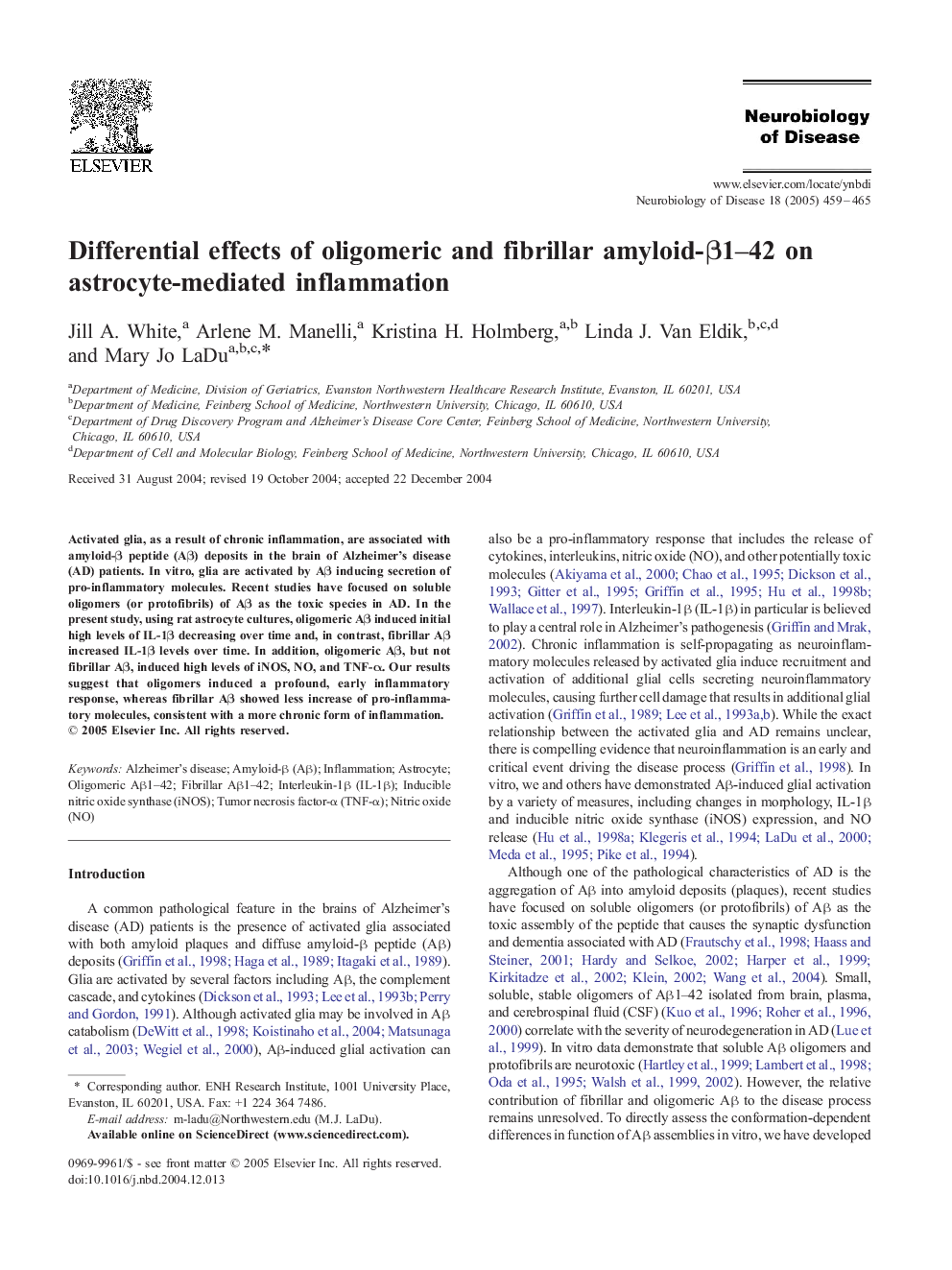| Article ID | Journal | Published Year | Pages | File Type |
|---|---|---|---|---|
| 9989767 | Neurobiology of Disease | 2005 | 7 Pages |
Abstract
Activated glia, as a result of chronic inflammation, are associated with amyloid-β peptide (Aβ) deposits in the brain of Alzheimer's disease (AD) patients. In vitro, glia are activated by Aβ inducing secretion of pro-inflammatory molecules. Recent studies have focused on soluble oligomers (or protofibrils) of Aβ as the toxic species in AD. In the present study, using rat astrocyte cultures, oligomeric Aβ induced initial high levels of IL-1β decreasing over time and, in contrast, fibrillar Aβ increased IL-1β levels over time. In addition, oligomeric Aβ, but not fibrillar Aβ, induced high levels of iNOS, NO, and TNF-α. Our results suggest that oligomers induced a profound, early inflammatory response, whereas fibrillar Aβ showed less increase of pro-inflammatory molecules, consistent with a more chronic form of inflammation.
Keywords
Related Topics
Life Sciences
Neuroscience
Neurology
Authors
Jill A. White, Arlene M. Manelli, Kristina H. Holmberg, Linda J. Van Eldik, Mary Jo LaDu,
